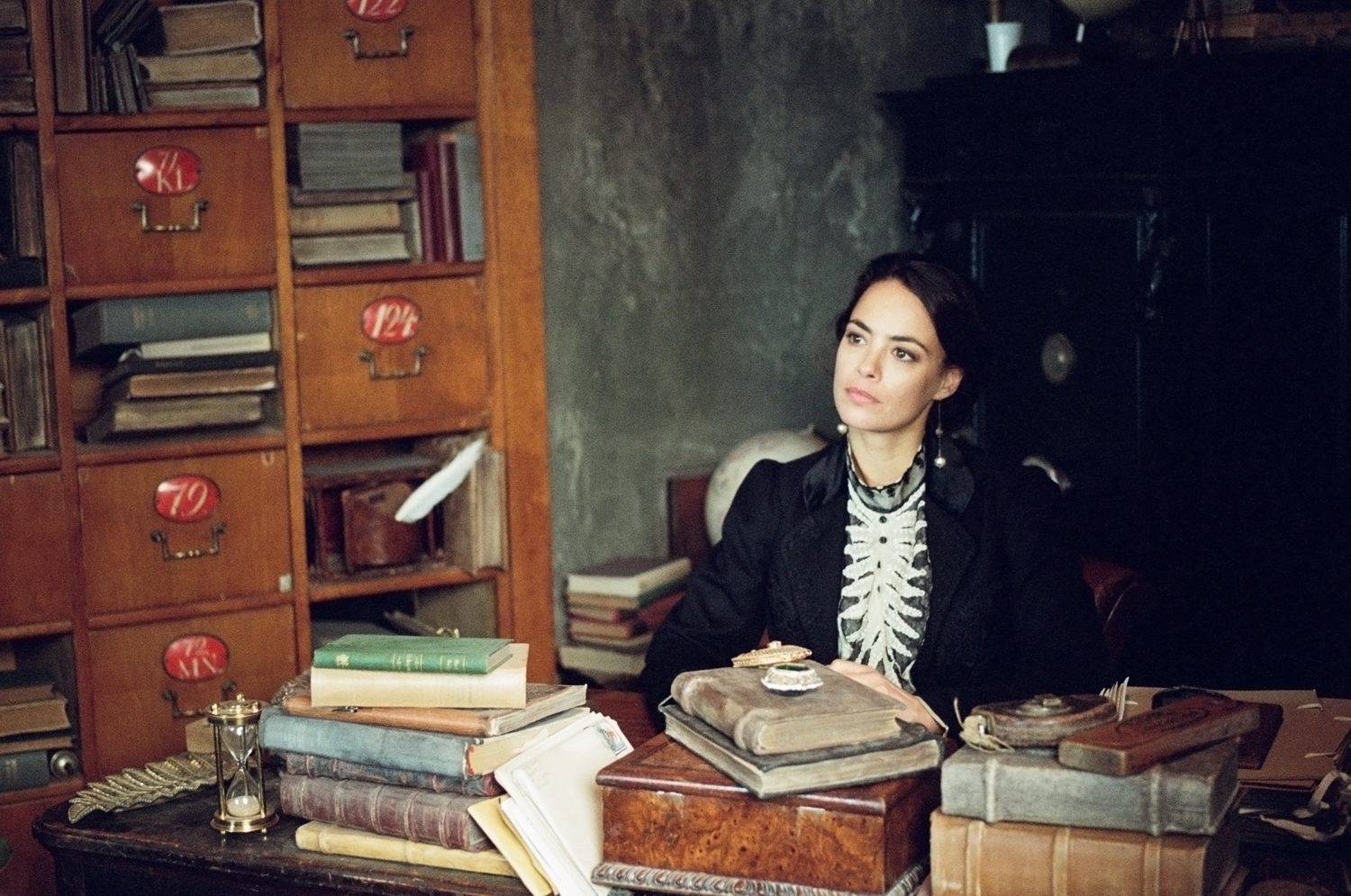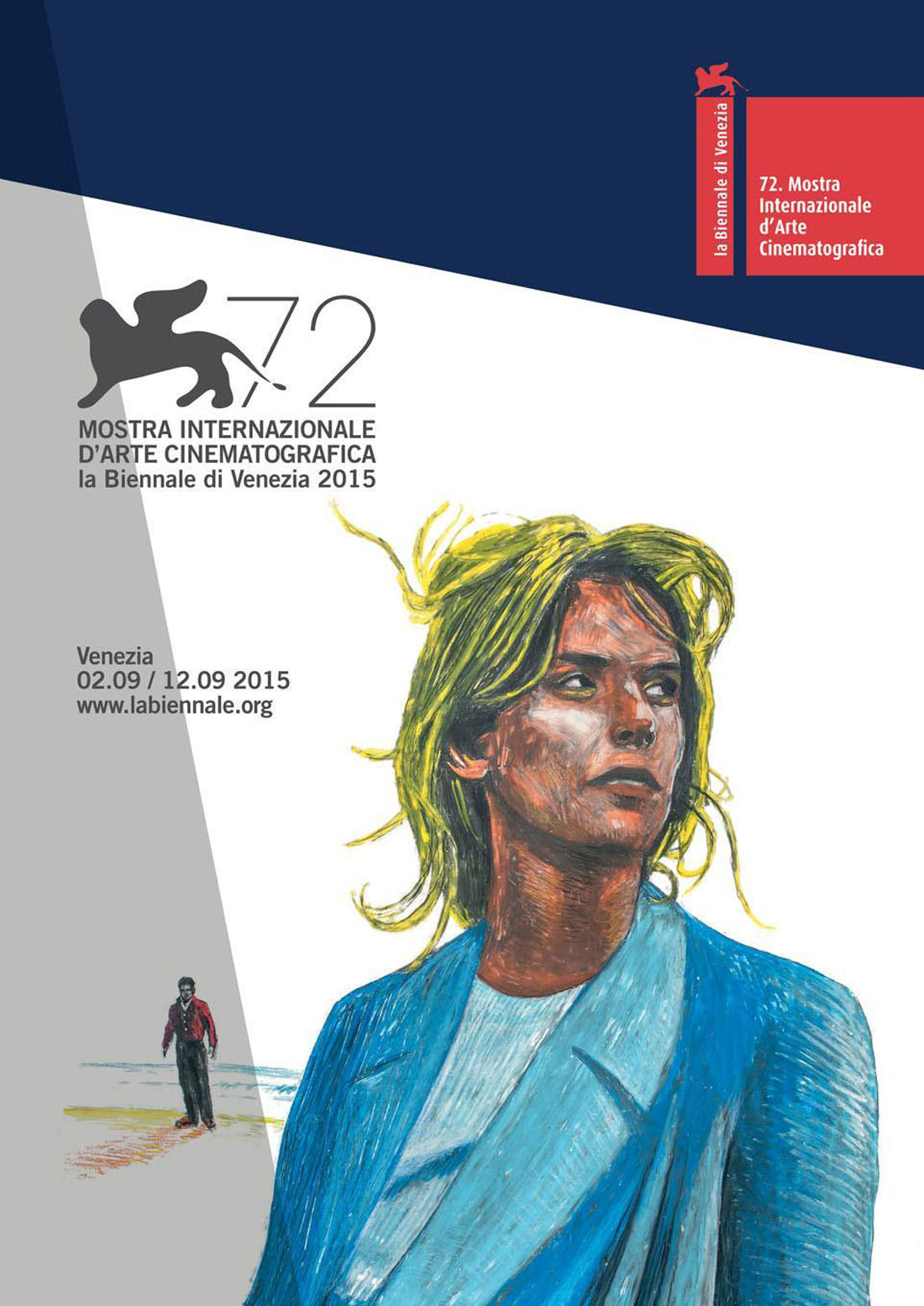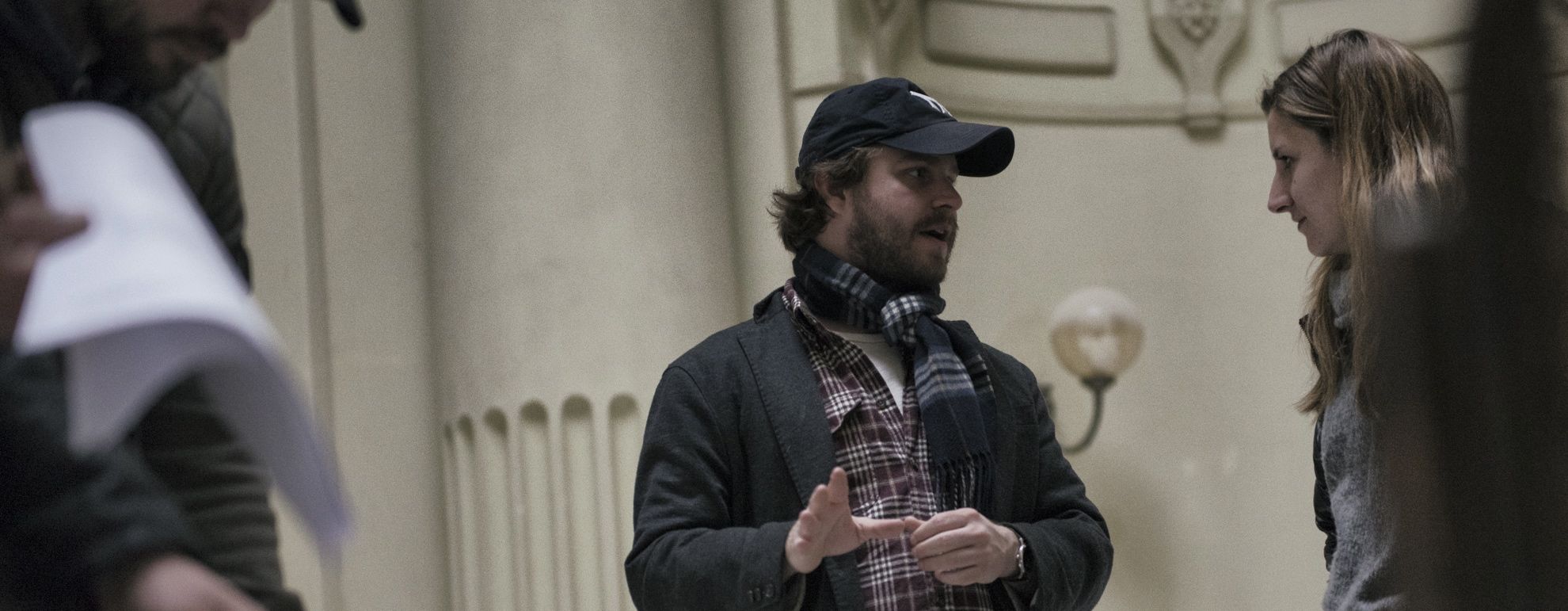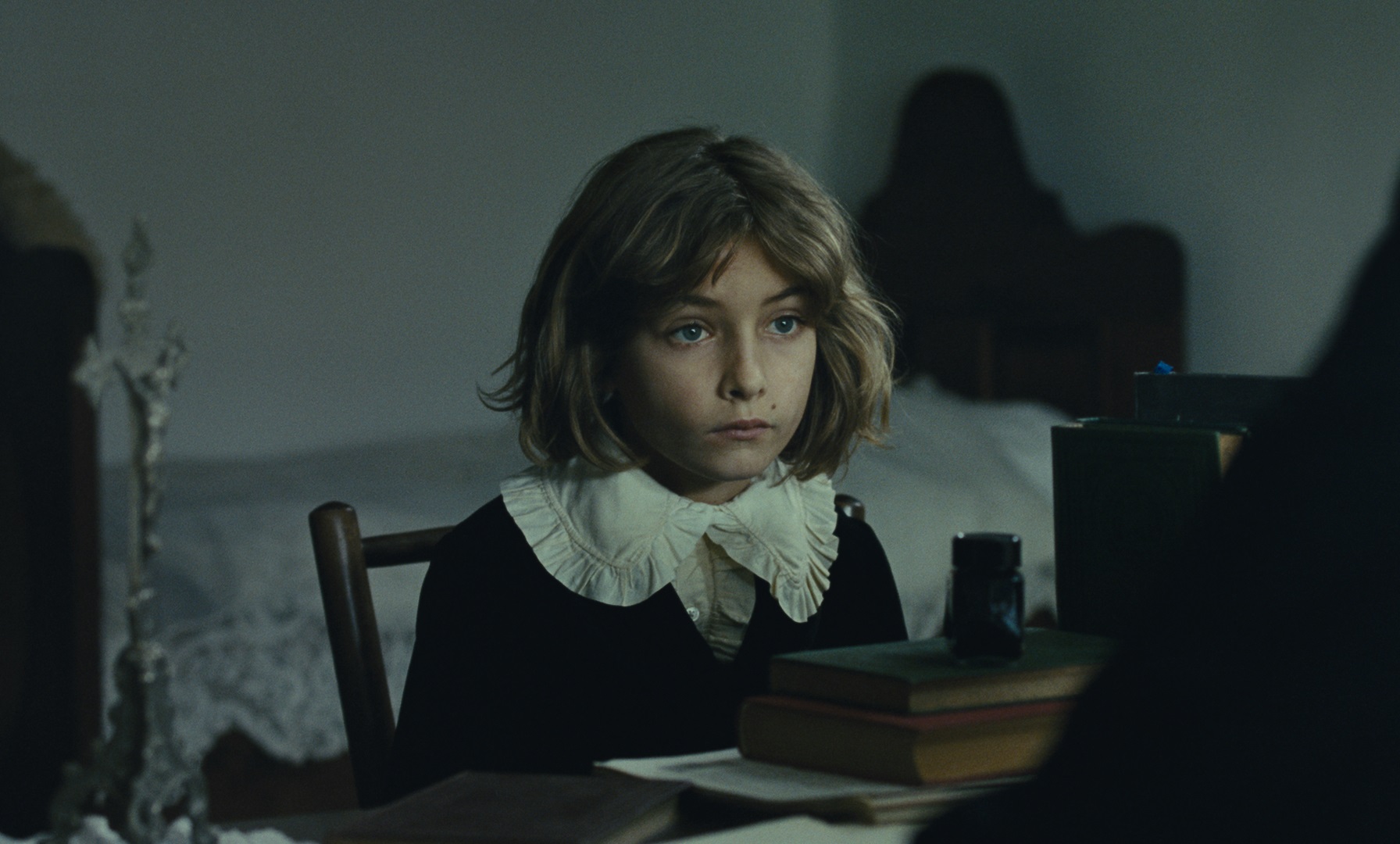The childhood of a Leader

Il film, ambientato tra le due guerre mondiali, racconta la storia di un bambino alto- borghese con il padre impegnato fra i delegati del Trattato di Versailles. La formazione rigida del bambino è punteggiata da episodi di sadismo e segnali di megalomania, un preludio al suo futuro da leader fascista. Colbert che ha un passato come attore ci racconta la genesi travagliata del film e i motivi di una scelta così insolita e coraggiosa.
BD: The head of production design is very important, he has the solution for every problem that arose, he realized that because of the way we set up to make this movie we were going to be extremely specific about what we were seeing and we were not seeing and that helps a lot. So also the 1,66 helps a lot because it’a lot easier to fill up your frame… So he said you have to make the film in Hungary, he worked there a lot, it’s the only place where they are going to have the props, the costumes, it’s more or less all there , you only are gonna have to take two or three trucks from France with lamps and stuff. Frankly the film was so unconventional in structure, because there is an american filmmaker, a norwegian producer and writer and then UK-Hungary-France and Belgium co-production… The movie was the Paris peace conference! So the amount of miscommunications was just shocking: we had contracts that had to be translated in three languages, it was very complicated and took a long time for the financing phase.
From where did you start? It was the european history of world war one that inspire you or was the idea of the child?
MF: The original idea in something of about ten years ago, so It’s inspired by many different things. We were lenting from this, form out there, we were inspired by arts, by novels…
What is the relevance of this story for Europe now? It seem a very european subject…
BC: Part of the idea was to talk about how everybody is responsable for the events that define the twentieth century. There is a certain amount of culpability that is… Is only in last 15 years partially because of Margaret MacMillan’s book “Paris 1919” where she gives a very sober account of the events of the peace conference. Her book is infinteley more complex and academic and more intelligent than any movie on the subject could ever be. But we didn’t mean to make a political film, we just wanted to make a poetic film about politics. Infact I think that historically speaking there is a lot of poetic films about politics, I’m thinking to Salò to… there is a million things, or Danton… But weirdly when we were going in front of committee trying to raise the money for the project, people was like: poetry and fantasy do not belong with history. And I find it really bizarre, because the thing is that history is always a version of history, is always a bit of a fiction. That’s the reason there is a book on Napoleon that come out every 9 years. It’s like the new definitive account, what more could you possibly learned in the last 9 years that the last guy didn’t know? So it’s a point of view. So never disturbed us to borrow from million differents events and sources and merge them.
But your film feels very contemporary, it looks like that, even though is in an historical setting, there is a sort of contemporary zeitgeist connected to the film, or contemporary message?
BC: There was an amazing article recently in New York Magazine, that was talking about the new tyranny and about how everybody has learned, maybe not in the first war, but in the second war, that you can’t just throw people in a cell, you can’t do it on a wide scale, then people are gonna get involved and it’s not gonna necessarily be so good for you, so they’re doing it in a much more slight way. But is there a comment on it? Not exactly. We always thought of the film as a tomb poem an elegy for the events of the twentieth century, that off course are still effecting everyone today and continue to. But you know… Is the message: the tyranny is bad? I mean… obviously! That’s the reason the war films are so tired, because it’s very difficult for people to say anything new about trauma, in a way, and that’s not to say that people should stop making them. Is still one of the most important subject to make any film on. I think for example the Bruno Dumont movie Flandres, it’s not a perfect film, but has something quite amazing, obviously Full Metal Jacket… But it’s hard because people who are making films on the second world war… you know where you’re gonna get, like ninety-nine percent of the times, you know that you’re gonna get image that had been digitally graded to be kind of grey and everyone’s gonna be dressed in paper bags or whatever and there is gonna be a a kid that is really honest and well…
It is very cinical the way you talk about stories out of the second world war…
BC: Yeah, well that’s the thing: you probably see a lot of films, I see probably two hundred movies in a year and I come out talking of five of them. There is a lot of content, images and films are more disposable than ever, mediocrity… I can only speak for my own country and what I’m seeing in the filmmakers community, I feel like something happened in the nineties when a lack of ambition becames really celebrated. It happened with the digital revolution, at first it was genuinely exciting. It was like: here is a tiny little camera and has all the texture, all this life, all this pixels
MF: It inspired dogma so that was really exciting, but now has turned into something where you are expected to use that because you can. Then you have just an actor in a living room…
BC: And then that made five million dollars and was made with four hundred thousand or whatever…
How do you think was in the nineties? I mean do you think that that was the era you could belong to?
BC: Here’s the thing: I definetely don’t resent my era, at all, because the fact is I’m not tired of it yet, I’m 27 years old and I think we are gonna see a lot of amazing things over the course the next twenty years, fourty years, fifty years… The only reason that bumps me out is because somehow that very low standard has maded very very difficult to have a high standard. It’s not cynical, it’s exaustion. I’m tired. We finished the film like four days ago, so it gonna take a little time to wash it off. We have been living in this universe for a long time and is a pretty heavy universe to live in for such a long time. And anxiety about the subject matter being misperceived, the anxiety about the narrative being misperceived, all those thing… ‘cause you worked so hard on it and you don’t need to be accepted by anyone, but you wanna make sure that it doesn’t just go to graveyard either.
How did you worked in the writing process to get to this high concept with a very particular structure, with chapters?
MF: The chapters was something that was always there in the original idea. It’s a device we found very exciting. It’s a tricky way to tell the story and to communicate with your audience. And also is an easy way to deliver information. But the script develop was slow, Brady had the original idea long time ago and when we started working on it we started thinking also about the cast and we kept rewriting and changing things, while we had new discoveries. When we found a new novel or a text on one of the themes we were talking about, we added something. In that way it kind of has a little bit of a life for itself after a while and then it started to grow and transform.
How tricky was to get Scott Walker (musician) involved?
BC: A lot less tricky than was to raise money for the movie. I didn’t think it was possible he would say yes, but we thought we would really try. Because we thought would be so appropriate, given the fact that he has written so much lyrics on the subject of tyranny in the twentieth-century, it’s a recurring theme in a lot of his music. Also this sort of architecture of his avant-garde pop songs and they are pop songs, because they are very addictive, it’s very easy to listen to over and over again, there’s some kind of subterranean melody that keeps you coming back for more. I find everything about Scott to be completely inspiring, but particularly for this project. We send a lot of letters, the same letters to a lot of different sources, we sent its to the filmmaker who made a documentary about him, to his producer, to the label and then after somebody just confirmed that he got it and three days laters he said yes. I got this e-mail starting with “Dear Brady…” and I thought he’s so nice he wrote me the rejection letter himself, I was like the most excited I’ve ever been to get rejected and then he said “Great I really look forward working together” and I was really amazed, I mean I was 23 or 24 years old and I couldn’t really believe it. It took years to get the film together, but he is used to working on things for a long long time… So he was just like: “Ok, you let me know…”
Was it frightening to work with these great actors for you as a young director?
BC: They are particullarly a nice group…
And they were scared for what the film is going to be, because is such a different film from other projects?
BC: I think everyone was invigorated by that… At a certain point after a couple of days, maybe a week, you know if it’s gonna at least be interesting, you don’t know if it’s gonna be good. Somebody is doing something right here. And we showed dailies to everybody all the time, just so they really understood what it was that we were doing, so we had contact. There’s a very strong relationship beetween the actors and the camera in the film. I tend only to like camera movement wich is dictated by gesture; I was like: it’s really important that you do this really fast, it’s not about the camera, it’s about your performance. We were lucky because the cast was very agreable with the formal style of the film. I know a lot of actors who are like: don’t fucking talk to me abouth the camera, I’m doing my job, you shoot me. The thing is that if I can’t see you, like if you are out of focus, then your performance sucks. Is this kind of funny thing beetween actors and the camera. And all of these people… I mean Berenice (Bejo) is married to a filmmaker, Liam was directing for years many years ago, so everyone was compassionate, everyone understood that we gave up a lot to be there.
And with an actor as Robert Pattison? I know he really looks forward films that are author film, that offering something else out of the mainstream.
BC: Yes for sure, he is a real cinephile. There is so many actors that could use their celebrity in a really amazing way, like Will Smith or Tom Cruise… Well Tom Cruise does that sometimes. There’s a lot of people who really don’t take advantages… Like I can get somebody’s film made and they are gonna challenge me and we are gonna grow together.
Did he help in finincing?
BC: Off course. The thing is funny because at the time… he was casted several years ago, we had no idea how significant it would end up being. We had a lot of others fancy cast members at one point, but at a certain point he was the only way to get the film made, after many years was to have Rob involved. And we originally hired Rob because of the fact we wanted somebody really charismatic and really recognizable.
MF: We wanted to feel right the way that this characher is very important.
BC: The thing great about Robert is that the less he does.. you can’t take your eyes of the guy! Because he is genuinely beautiful to look at, it’s really like he draws you in, in a classic cold way. He is compelling.

Even with the shaved head…
BC: Yeah!
Do you think some of the Twilight crowd will go to see the film just because he is in it?
BC: I don’t know… They go see Cosmopolis?
MF: I think it would be good for them.
BC: It’s a movie that was made by a group of adults for adults. And everyone knew that. Everyone knew that was going to be for people looking for a unique experience and care at least a little bit about world history. It requires a little bit of interest, a little bit of curiosity and a little bit of knowledge about it. We thought it would be so tedious to catch everyone up. Most european know a thing or two about the treaty of Versailles, a lot of americans don’t. It’s not because americans are not educated, but they are not educated about that.
How important was for you to put those archives footage? Did you feel like you had to put that in for a certain kind of audience?
BC: No… because if you don’t know who George Clemenceau is, you are not gonna recognize him. I knew that… the only way that we could catch people up is if we have like a Star Wars style kind of prologue! The reason I opened to the archives is because off course there is relationship beetween the birth of cinema and the birth of fascism, because propaganda changed the time. For me there was something haunting about reminding that the moving image wasn’t that long ago. We spent a lot of time in the archives and those images are the highest quality version of those images everyone has ever seen. It tooks six months to produce four minutes of archives.
What’s your relationship to acting? We have seen you recently in small roles…
BC: What happened is that a friend of mine was making movie, while I was stuck in constant preparation on our movie. I wasn’t really available to do anything because we always thought we are gonna be making the movie next month. It was years of having our bags packed…
Did you turn a lot of actor’s jobs down?
BC: Yeah, I just told my agency I wasn’t available. I have been so focused on just getting this done for such a long time, that it has been impossible to me to see a professional life passed it. We also had a 13month old daughter so first of all I just need to go back to be a human being again for at least some months. I have always acted for people that I thought it would be a real joy to work for. A couple of time I did something for money, but not that much. So I don’t know… If I wanna be an actor for hire, to make money, because now we have a kid and whatever, then I have to go to different kind of movies or I have to do lots of art films. It’s a weird thing… after these many years of calling the shots it will be odd to go and work for anyone unless you feel they are truly amazing.
Give us the name…
BC: David Lynch… There’s not that many people, I’d love to go to Hou Hsiao-hsien and ask: “If you ever come to the States let me know”.
Did your agency ever tried to put you up for studio projects?
BC: Sure. There was a period in my life when I used to get offered a lot of things that I walked away from, and then I stopped being offered, it stopped like that. You just alienate people logging off and they say no problem we’ll leave you alone. And then You are: actually things had changed a little bit in my life, I actually would like to put on a cape! But I think that this movie… I gonna live with the movie and represent it for a little while, maybe not a year, but for sic months or something. Because I think distributors are… you know they work a lot, they have something realy exciting to work with, but they have to decide how to contextualize it. And for me… my feeling, the way we sold the film to people before we made it, was we said whether people like or whether people don’t like it it will be an event. And it would be an event because of its commitment to a certain kind of somberness, wich is unusual, and also will be an event because of how grand, how loud and how meticulous it was put together.
I loved how the film is out of the mediocre, but do you think it could be an insult for the movie to be an arrogant film? You refer to Sartre…
BC: I think of myself as an unpretencious guy, I don’t have an academic background, I was high school drop out, but I grew up working in a book store and I read a lot of books and I think it’s super cool to read. There’s this weird thing where everyone wants to be ironic all the time, and never like totally just operatic and sincere. Scott Walker for example is an artist that, as a guy is a very regular guy, but he is very exceptional artist. The work is the work and most people have never known they are really great at it, they really operate on instict and serve as a kind of conduit for the thing to eventually exist. That’s an important way to continue pursuing the medium. Movies used to be globally a little less bit predictable. Art cinema is not outside of this problem. The mainstream is the mainstream and that’s totally cool if you wanna chill out and turn your brain off for a little while, absolutely everyone is entitled to that.


Le foto sono state messe a disposizione della stampa dal sito pressbox.labiennale.org/ che ringraziamo. La foto della madre è di Agatha A. Nitecka.




2 commenti